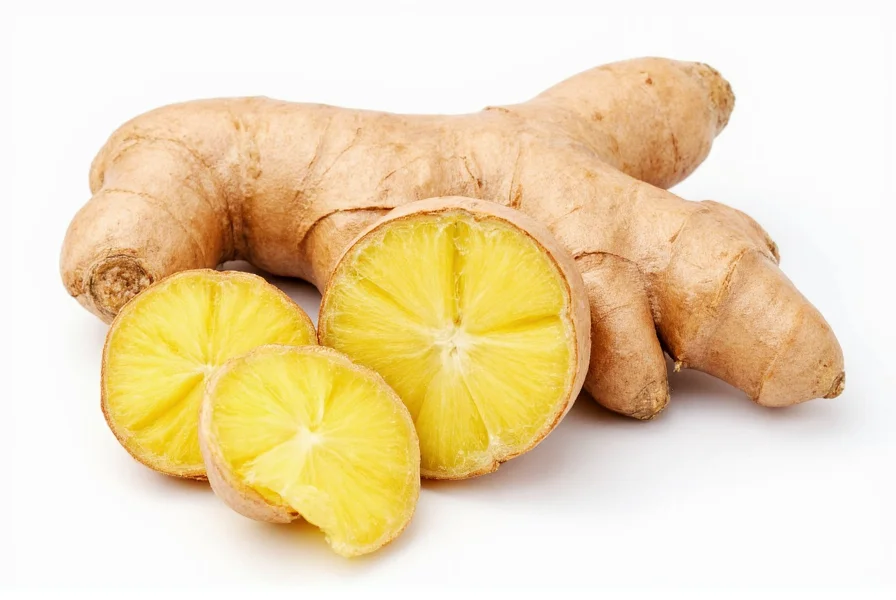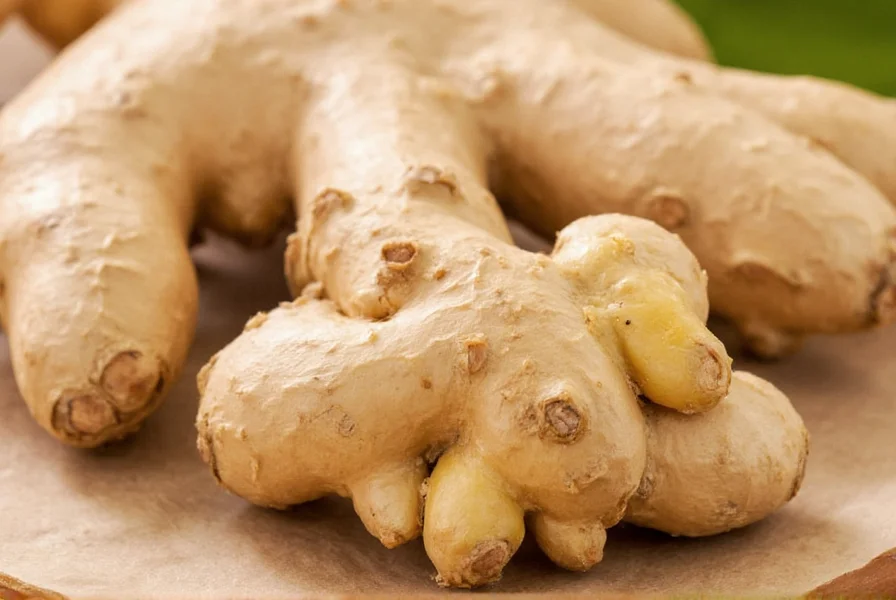For centuries, ginger root (Zingiber officinale) has been revered in traditional medicine systems across Asia and the Middle East. Modern scientific research now validates many of these historical uses, revealing ginger's impressive pharmacological profile. This versatile rhizome contains over 400 distinct biochemical compounds, with gingerols and shogaols serving as its primary therapeutic agents responsible for most documented health benefits.
Scientifically Validated Health Benefits of Ginger Root
Nausea and Digestive Relief
Ginger root stands as one of the most effective natural remedies for nausea relief. Multiple clinical trials confirm its efficacy against various forms of nausea:
| Type of Nausea | Research Findings | Recommended Dosage |
|---|---|---|
| Morning sickness | 1g daily reduced symptoms by 60% compared to placebo (Obstetrics & Gynecology study) | 250mg powdered ginger 4x daily |
| Post-operative nausea | Reduced incidence by 38% when taken pre-surgery (Anesthesia & Analgesia) | 1g 1 hour before surgery |
| Chemotherapy-induced nausea | Significantly reduced severity when combined with standard antiemetics (Cancer Management and Research) | 0.5-1g daily during treatment |
Ginger stimulates gastric motility and accelerates stomach emptying, making it particularly effective for functional dyspepsia. A double-blind study published in European Journal of Gastroenterology & Hepatology found ginger capsules reduced indigestion symptoms by 25% compared to placebo.

Anti-Inflammatory and Pain Reduction Properties
Ginger's potent anti-inflammatory effects stem from its ability to inhibit cyclooxygenase and lipoxygenase pathways—similar to non-steroidal anti-inflammatory drugs (NSAIDs), but without the gastrointestinal side effects. Research demonstrates ginger's effectiveness for:
- Osteoarthritis: A 6-month clinical trial in Arthritis & Rheumatism showed participants taking 255mg ginger extract daily experienced 30% greater pain reduction during movement compared to placebo
- Muscle pain: Consuming 2g of raw ginger daily for 11 days reduced exercise-induced muscle pain by 25% (Journal of Pain)
- Menstrual pain: 75% of women in a comparative study reported significant pain relief with 1g ginger powder during the first three days of menstruation, matching the effectiveness of ibuprofen
Antioxidant and Cellular Protection
Ginger root contains powerful antioxidants that combat oxidative stress and reduce markers of inflammation throughout the body. Its antioxidant capacity measures 10,700 μmol TE/100g—significantly higher than many common fruits and vegetables. Regular consumption has been shown to:
- Reduce malondialdehyde (MDA) levels by 28% in clinical trials, indicating decreased lipid peroxidation
- Increase activity of antioxidant enzymes like superoxide dismutase (SOD) and glutathione peroxidase
- Protect against DNA damage in human studies when consumed regularly
Cardiovascular Health Support
Emerging research suggests ginger may support heart health through multiple mechanisms. A meta-analysis of 13 studies published in Nutrition Journal found ginger supplementation significantly improved several cardiovascular markers:
- Reduced fasting blood glucose by 12% in diabetic patients
- Lowered systolic blood pressure by 5-8 mmHg in hypertensive individuals
- Decreased LDL cholesterol by 15 mg/dL and triglycerides by 30 mg/dL
These effects appear dose-dependent, with optimal results seen at daily intakes of 1-3 grams of ginger extract.
Practical Application: How to Use Ginger for Maximum Benefit
Fresh vs. Dried Ginger: What Research Shows
While both forms offer benefits, research indicates important differences:
- Fresh ginger: Contains higher levels of gingerols (6-8x more than dried), making it superior for anti-nausea effects
- Dried/ground ginger: Higher shogaol content (formed during drying process) provides stronger anti-inflammatory effects
- Ginger tea: Steeping fresh ginger for 10 minutes extracts approximately 70% of active compounds
Recommended Daily Intake and Timing
Clinical research supports these evidence-based consumption guidelines:
- General wellness: 1-1.5g daily (about 1/2 teaspoon powdered or 1-inch fresh slice)
- Nausea relief: 1-2g taken 30 minutes before potential nausea trigger
- Inflammation management: 2g daily divided into 2 doses with meals
Consuming ginger with black pepper increases absorption of its active compounds by up to 30% due to piperine's effect on metabolism.
Safety Considerations and Potential Interactions
Ginger is generally recognized as safe by the FDA, but certain precautions apply:
- Blood thinners: May enhance effects of warfarin and other anticoagulants (consult physician)
- Diabetes medications: May potentiate blood sugar-lowering effects
- Pregnancy: Safe up to 1g daily for morning sickness; avoid higher doses in third trimester
- Surgery: Discontinue 1 week before scheduled procedures due to potential bleeding risk
Side effects are rare at recommended doses but may include mild heartburn or mouth irritation. Consuming ginger with food typically prevents gastrointestinal discomfort.
Limitations of Current Research
While promising, ginger research has important limitations to consider:
- Many studies use small sample sizes (under 100 participants)
- Long-term effects beyond 6 months remain understudied
- Optimal formulations (fresh, dried, extract) vary by condition
- Individual responses show significant variability based on metabolism
Researchers emphasize that ginger should complement—not replace—conventional medical treatments for serious conditions. Its greatest value lies in prevention and managing mild to moderate symptoms.
Conclusion: Integrating Ginger Into a Healthy Lifestyle
Ginger root represents one of nature's most versatile medicinal plants with substantial scientific backing for specific health applications. Its effectiveness for nausea relief, anti-inflammatory benefits, and antioxidant properties make it a valuable addition to preventive health strategies. When incorporating ginger into your routine, prioritize consistent moderate consumption rather than occasional high doses for optimal results. As with any natural remedy, consult your healthcare provider before using ginger therapeutically if you have underlying health conditions or take prescription medications.
Frequently Asked Questions
How quickly does ginger work for nausea relief?
Ginger typically begins working within 30-60 minutes when taken preventatively. For best results, consume 1g of ginger 30 minutes before potential nausea triggers. Studies show peak effectiveness occurs 1-2 hours after consumption, with effects lasting 4-6 hours depending on the form used.
Can ginger help with weight loss?
While ginger isn't a weight loss miracle, research suggests it may support metabolic health. A clinical trial published in Metabolism found participants taking 2g of ginger powder daily experienced modest reductions in body weight (2-3 pounds over 12 weeks) and waist-to-hip ratio compared to placebo. Ginger appears to enhance thermogenesis and fat oxidation, but should be combined with diet and exercise for meaningful results.
What's the difference between ginger root and ginger supplements?
Whole ginger root contains the full spectrum of ginger's natural compounds, while supplements often standardize specific components like gingerols. Research indicates whole ginger may provide synergistic benefits that isolated compounds don't replicate. Supplements offer consistent dosing (typically 250-500mg per capsule), while fresh ginger potency varies based on growing conditions and freshness. For therapeutic use, standardized extracts provide more reliable dosing, but culinary use of fresh ginger offers broader nutritional benefits.
Is it safe to consume ginger daily?
Yes, consuming up to 4g of ginger daily is generally considered safe for most adults according to the European Medicines Agency. Most research shows optimal benefits at 1-2g daily. Long-term studies monitoring daily ginger consumption for up to 2 years report minimal side effects at these doses. However, individuals with gallstones should consult a physician before regular consumption, as ginger may increase bile production.
Can ginger interact with blood pressure medications?
Ginger may enhance the effects of certain blood pressure medications due to its mild hypotensive properties. While clinical evidence of dangerous interactions is limited, individuals taking antihypertensive medications should monitor their blood pressure when starting regular ginger consumption. The risk appears minimal at culinary doses (under 1g daily), but therapeutic doses (2g+) warrant consultation with a healthcare provider to adjust medication if necessary.











 浙公网安备
33010002000092号
浙公网安备
33010002000092号 浙B2-20120091-4
浙B2-20120091-4